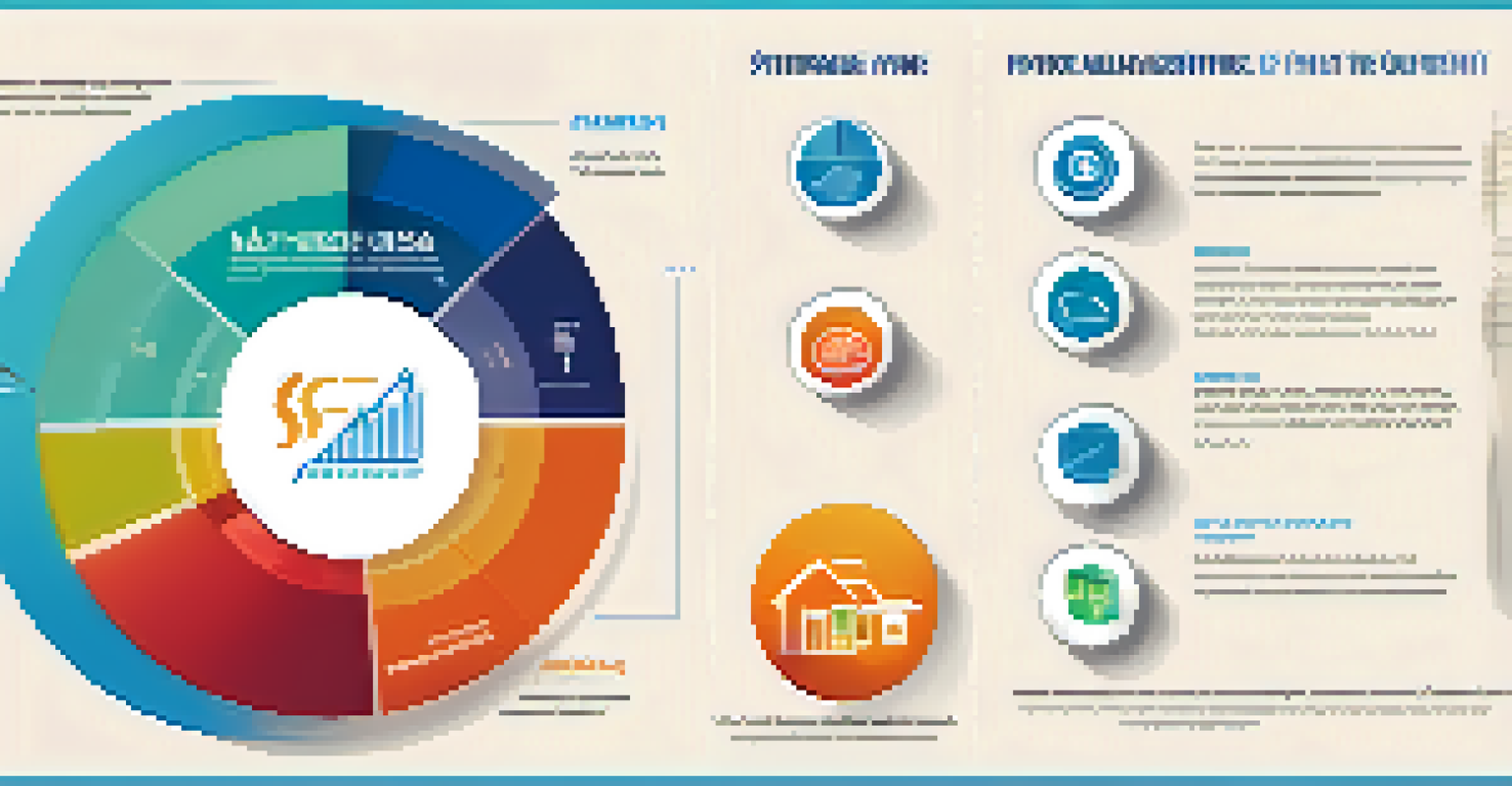Understanding Mortgage Insurance for First-Time Buyers

What is Mortgage Insurance and Why Do You Need It?
Mortgage insurance is a policy that protects lenders in case you default on your loan. For first-time buyers, it’s often a necessary step when you can’t put down a hefty deposit. Essentially, it allows you to secure a mortgage with a lower down payment, which can be a lifesaver for many newcomers to homeownership.
Real estate is an imperishable asset, ever-increasing in value. It is the most solid security that human ingenuity has devised.
You might wonder why lenders require this extra layer of security. The answer lies in risk: the less you put down, the more risk the lender takes. By requiring mortgage insurance, they mitigate that risk, allowing you to enter the housing market sooner than you might have thought possible.
It’s important to note that while mortgage insurance benefits lenders, it can also make homeownership more accessible for you. With this insurance, you can buy a home without a 20% down payment, allowing you to start building equity sooner.
Types of Mortgage Insurance Explained
There are primarily two types of mortgage insurance: Private Mortgage Insurance (PMI) and Federal Housing Administration (FHA) mortgage insurance. PMI is typically required for conventional loans when your down payment is less than 20%. On the other hand, FHA insurance is designed for borrowers with lower credit scores and allows for smaller down payments.

Understanding these options is crucial for first-time buyers. If you’re opting for an FHA loan, you’ll have to pay both an upfront premium and monthly premiums. With PMI, you might only need to pay monthly premiums, and these can sometimes be removed once you reach a certain equity threshold.
Mortgage Insurance Increases Access
Mortgage insurance enables first-time buyers to purchase homes with lower down payments, making homeownership more attainable.
Choosing the right type of mortgage insurance can depend on your financial situation and long-term plans. It’s worth comparing costs and benefits to find the best fit for your home-buying journey.
How Mortgage Insurance Affects Your Monthly Payments
Mortgage insurance can significantly impact your monthly mortgage payments. The cost of PMI typically ranges from 0.3% to 1.5% of the original loan amount per year. This means that for a $200,000 loan, you might pay anywhere from $600 to $3,000 annually, adding to your monthly budget.
Saving for a home is a marathon, not a sprint. Every little bit helps, and mortgage insurance can be a stepping stone toward your dream.
On the flip side, FHA mortgage insurance can be more predictable, but it may also result in higher total costs over the life of the loan. Knowing how these costs fit into your overall budget is vital for first-time buyers, as it affects not just what you can afford now but your financial health in the future.
It’s essential to budget for these expenses when considering buying a home. Knowing that mortgage insurance will be part of your monthly costs can help you make informed decisions about how much home you can truly afford.
When Can You Cancel Mortgage Insurance?
One of the most appealing aspects of mortgage insurance is that, in many cases, you can cancel it once you've built up enough equity in your home. For PMI, you can typically request cancellation once your equity reaches 20%. This can lead to significant savings in your monthly payments.
For FHA loans, however, the rules are a bit different. Depending on when you took out your loan, you may be required to pay mortgage insurance for the life of the loan. This is an important consideration for first-time buyers who are exploring their options.
Credit Score Impacts Insurance Costs
A higher credit score generally leads to lower mortgage insurance premiums, highlighting the importance of maintaining good credit.
Understanding when and how to cancel mortgage insurance can save you money in the long run. Be sure to keep an eye on your home’s value and your equity to determine the right time to make that request.
The Role of Your Credit Score in Mortgage Insurance
Your credit score plays a significant role in determining your mortgage insurance rates. Generally, the higher your credit score, the lower your mortgage insurance premiums will be. This means that taking the time to improve your credit before applying for a mortgage can save you money in the long run.
For first-time buyers, this might mean considering strategies to boost your score, such as paying down debts or making timely payments. Even small changes can lead to better rates, making homeownership more affordable.
In essence, your credit score doesn’t just affect your ability to secure a loan; it also influences how much you’ll pay for mortgage insurance. So, it’s worth investing some effort into understanding and improving your credit.
Potential Benefits of Mortgage Insurance for First-Time Buyers
While mortgage insurance may seem like an additional cost, it can actually open doors for first-time buyers. By allowing you to purchase a home with a smaller down payment, mortgage insurance makes homeownership more accessible. This can be a game-changer for those who might otherwise struggle to save enough for a large deposit.
Additionally, mortgage insurance can help you enter the housing market sooner. Instead of waiting years to save a 20% down payment, you can buy a home now and start building equity while you pay down your mortgage.
Know When to Cancel Mortgage Insurance
You can typically cancel mortgage insurance once you reach 20% equity in your home, significantly reducing monthly expenses.
Ultimately, mortgage insurance can be seen as a stepping stone to homeownership. While it adds a monthly cost, the long-term benefits of owning a home often outweigh this initial hurdle.
Tips to Prepare for Mortgage Insurance Costs
Preparing for the costs associated with mortgage insurance is key for first-time buyers. Start by budgeting for both your monthly mortgage payments and the additional cost of insurance. This will give you a clearer picture of your financial commitment and help avoid surprises down the line.
Consider setting aside extra funds in a savings account specifically for these costs. Knowing you have a financial cushion can provide peace of mind as you navigate the home-buying process.

Finally, don’t hesitate to ask your lender about your options and how to minimize mortgage insurance costs. They can provide insights tailored to your financial situation, making sure you’re informed and prepared.